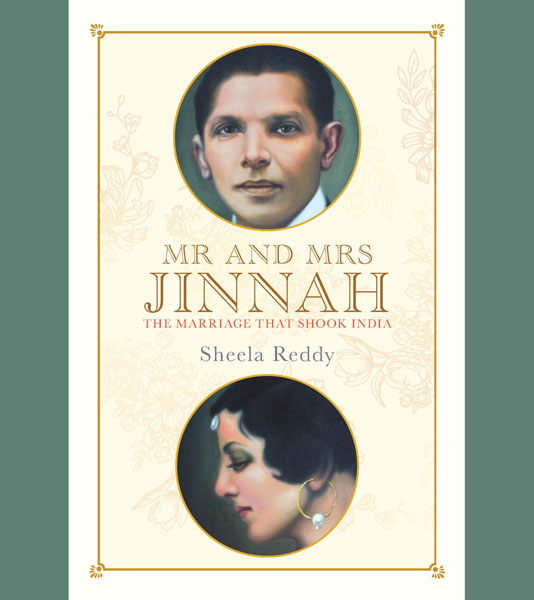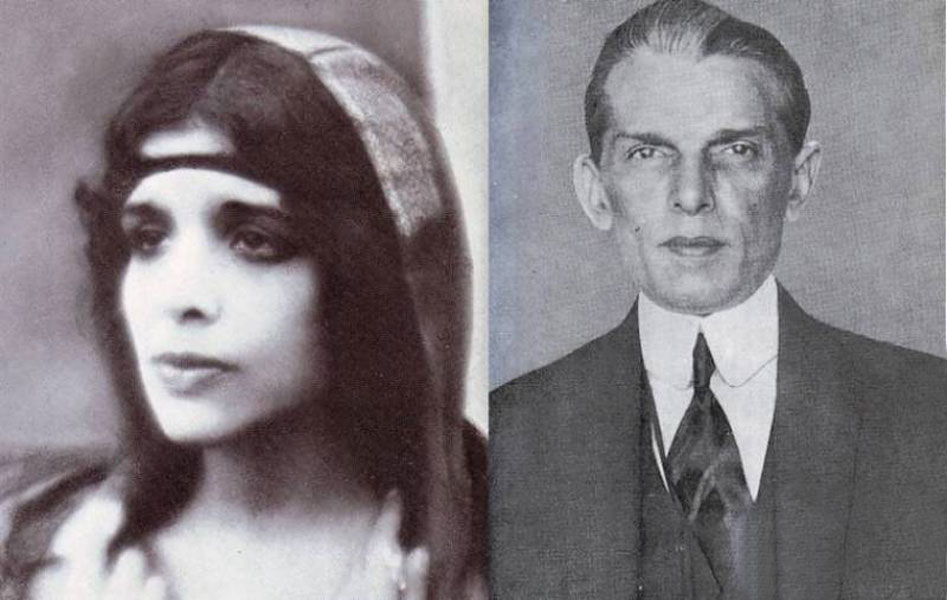
The principal merit of Sheela Reddy’s beautifully written and highly acclaimed book Mr and Mrs Jinnah, which is about their unlikely love affair and tragic marriage, resulting in Ruttie Jinnah’s suicide on her 29th birthday through an overdose of sleeping pills, is that she corrects the stereotype picture of Jinnah as a vicious, malevolent, bloodthirsty Islamic fundamentalist whose sole aim was to grab power in the newly created State of Pakistan, after contouring the tragic Partition of composite India.
Entering Jinnah’s mind and persona through his love marriage to Ruttie Petit, Bombay’s fabulously rich baronet’s only daughter and heiress to limitless fortune, Sheela seeks to correct the portrayal of Jinnah as a dull, unemotional, vengeful, unprincipled old man, mean of purse and spirit, that we have grown up to believe. It is also Sheela’s argument that Jinnah was not rabidly communal; rather he was an ethical, secular, constitutionalist who tried to reason with the British about the injustice of colonial rule in India.
It is revealed in this painstakingly researched book in which excerpts and extracts from original documents and letters have been seamlessly woven into elegant prose in the manner of pearls strung together into an exquisite necklace that Jinnah was a man of great integrity and led a restrained, celibate life, never stooping to trickery or lowly gimmicks to put down his political rivals. In fact, Jinnah comes through as a brilliant barrister who, single-handedly, armed with incontrovertible icy cold logic, advanced the cause of India’s freedom.
And, through his remarkable persuasion, could make the Viceroy and the Secretaries of State quake and squirm when he spoke on points of Constitutional justice for India’s Independence. Being an undemonstrative, self-styled English gentleman, he had no time to waste on Muslim clerics and rabble rousers with spade beards. And, it was only after Gandhi and Nehru squeezed Jinnah out of the top rungs of the Congress party, did he turn to the two-nation theory and an independent nation for Muslims, carved out of the Indian sub-continent.
It was after Ruttie’s death in 1929, that Jinnah built up the Muslim League from scratch and led the Muslim fundamentalists into baying for an independent Islamic state of Pakistan. Sheela Reddy has corrected a grave historical wrong done to Jinnah and has resurrected him as a great leader who could stand head and shoulders over most of his political contemporaries. By comparison, in her book, Mahatma Gandhi comes through as a somewhat wily leader and a man who, openly advocated that Hindus should not marry Muslims. This is revealed, she says, in his advice to Motilal Nehru at the time when Vijayalakshmi Pandit was in love with a Muslim man. The author says that as a result of the Mahatma’s rigid stand, that marriage had to be called off. Jinnah, on the other hand, strongly believed in Hindu-Muslim marriages.
But on this matter, Sheela is on slippery ground for Gandhiji is widely hailed as a man of deep spirituality and unflinching integrity, and completely secular.
It is impossible not to admire the spunky Ruttie, who refused to bow down to the top British officers; not standing up to greet one Viceroy and refusing to curtsy another one, instead greeting him with a defiant namaste!
At another level, the book opens a window to the fabulous world of wealthy Parsi aristocrats who lived in fairy tale castles in palatial homes, resplendent with Belgian chandeliers and gilded ceilings in Bombay’s Malabar Hills, with their terraced gardens looking out to the Arabian sea. They also owned sprawling scenic estates on the French Riviera, quite often larger than the estates owned by European kings and princes.
In fact, Parsi families like the Petits, Ruttie Jinnah’s parents, lived in greater style and were far more elegant in their lifestyle, than many Indian princes.
The book, while talking about Jinnah’s career, gives readers a revealing insight into Jinnah’s relations with Gandhiji, Nehru, Sarojini and Padmaja Naidu, as well as leading political leaders during a turbulent stage in India’s history. Mr and Mrs Jinnah is an important work of history and useful for future researchers. Also, the tragic love story of Jinnah’s marriage to the exquisitely beautiful Ruttie Petit against the last sunset of British India is a work of great literary merit. The author tells us in poignant metaphors how the couple, obsessively in love with each other through the difficult and awkward circumstances they faced together, including being isolated from the world, ostracised by society on both sides of the marriage, and sneered at by their peers and would-be rivals, stood together, before falling apart. At another level, her book is a tragic love story that makes one sit up and grieve at the absolute nature of finality.
“On their honeymoon,” writes Sheela, “they seemed a perfect match: a dazzling handsome couple despite the 24-year age difference; witty, intelligent and fashionable. Jinnah was tall and thin with sharply chiselled features. Ruttie was dainty, warm, spontaneous, with a look of sparkling mischief that made her irresistible.”
But the marriage disintegrated rapidly as time passed, owing to the inherent mismatch as well as Jinnah’s total and consuming preoccupation with politics in which he disallowed Ruttie any role.
In her final letter to Jinnah after she separated from him, Ruttie writes, “Try and remember me beloved as the flower you plucked, not the flower you tread upon. I have suffered much sweetheart, because I loved much. The measure of my agony has been in accord to the measure of my love. Darling, I love you. I love you — and had I loved you just a little less, I might have remained with you. The higher you set your ideal, the lower it falls. I have loved you my darling as it is given to a few men to be loved. I only beseech you that our tragedy which commenced with love, should end with it. Darling, goodnight and goodbye.”
The book, despite its average editing, is both a historical, as well as a literary masterpiece. It has not only furthered knowledge and set right the great historical wrong to Jinnah, it is a powerful commentary on modern India written by one who wields a powerful pen. Mr and Mrs Jinnah’s story, is a collector’s item that awaits its sequel to the final Partition of India.






